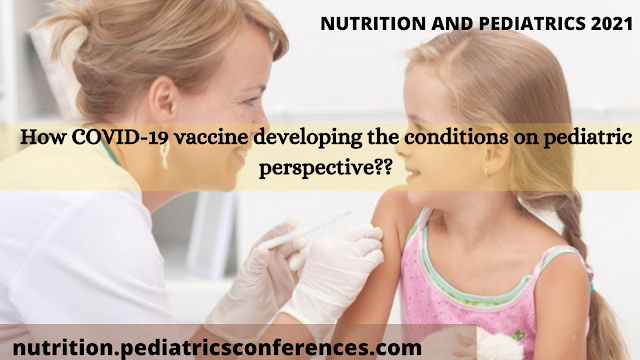How COVID-19 vaccine developing the conditions on pediatric perspective??

Severe acute respiratory syndrome coronavirus 2 (), the novel Covid that causes Covid sickness 2019 (COVID-19), was first revealed in Wuhan, China on December 31, 2019. Albeit a large part of the mortality has happened in more seasoned grown-ups, significant dismalness and mortality likewise happen in youngsters. Kids could profit both directly and indirectly from vaccination. In light of the safety and immunogenicity results from recent adult COVID-19 vaccine clinical trials, children should have the opportunity to be included in clinical trials in parallel to ongoing adult phase 3 clinical trials in a manner that is careful, methodical and transparent. EFFECTS OF COVID-19 IN CHILDREN AND POTENTIAL BENEFITS OF COVID-19 VACCINES: Children of any age are vulnerable to SARS-CoV-2 contamination and serious sickness signs. Albeit most of instances of COVID-19 in kids are asymptomatic or gentle, 18.4/100,000 youngsters 0–4 years old and 10.6/100,000 kids 5–17 years old require hospita...



